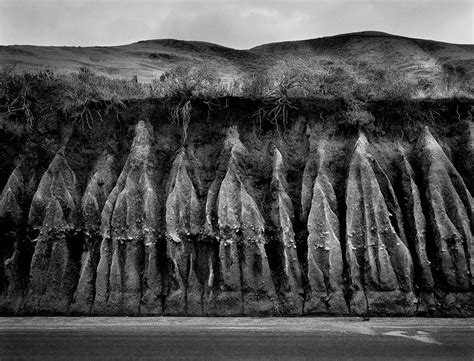A Quote by Wynn Bullock
Theoretical scientists who probe the secrets of the universe and philosophers who seek answers to existence, as well as painters such as Paul Klee who find the thoughts of men of science compatible with art, influence me far more than most photographers.
Related Quotes
So far I have been speaking of theoretical science, which is an attempt to understand the world. Practical science, which is an attempt to change the world, has been important from the first, and has continually increased in importance, until it has almost ousted theoretical science from men's thoughts.
There are two questions that get to us all: Are we alone in the Universe? And, where did we come from? For me, science provides a much more satisfactory way to seek answers than does any religion I've come across. With that said, the universe is mysterious and wonderful. It fills me with reverence for nature and our place among the stars; our place in space.
Your remarks upon chemical notation with the variety of systems which have arisen, &c., &c., had almost stirred me up to regret publicly that such hindrances to the progress of science should exist. I cannot help thinking it a most unfortunate thing that men who as experimentalists & philosophers are the most fitted to advance the general cause of science & knowledge should by promulgation of their own theoretical views under the form of nomenclature, notation, or scale, actually retard its progress.
Its a consequence of the experience of science. As you learn more and more about the universe, you find you can understand more and more without any reference to supernatural intervention, so you lose interest in that possibility. Most scientists I know dont care enough about religion even to call themselves atheists. And that, I think, is one of the great things about science-that it has made it possible for people not to be religious.
The private motives of scientists are not the trend of science. The trend of science is made by the needs of society: navigation before the eighteenth century, manufacture thereafter; and in our age I believe the liberation of personality. Whatever the part which scientists like to act, or for that matter which painters like to dress, science shares the aims of our society just as art does.
I feel that I've often pointed out that there are countless aspects of life and nature that scientists and scientific thinkers cannot explain. Why the universe is accelerating in its expansion and what came before the Big Bang serve as compelling examples. The process of science provides a way to seek answers to those questions.
I now believe that the universe was brought into existence by an infinite Intelligence. I believe that this universe's intricate laws manifest what scientists have called the Mind of God. I believe that life and reproduction originate in a divine Source. Why do I believe this, given that I expounded and defended atheism for more than a half century? The short answer is this: this is the world picture, as I see it, that has emerged from modern science.
Medicine is the science by which we learn the various states of the human body in health and when not in health, and the means by which health is likely to be lost and, when lost, is likely to be restored back to health. In other words, it is the art whereby health is conserved and the art whereby it is restored after being lost. While some divide medicine into a theoretical and a practical [applied] science, others may assume that it is only theoretical because they see it as a pure science. But, in truth, every science has both a theoretical and a practical side.
One thing most of us agree on is that the universe exists (people who deny that usually follow some trade other than science), so if some theoretical particle interaction would lead ultimately to the nonexistence of the universe, then you can save a lot of electricity by not trying to demonstrate it.



































